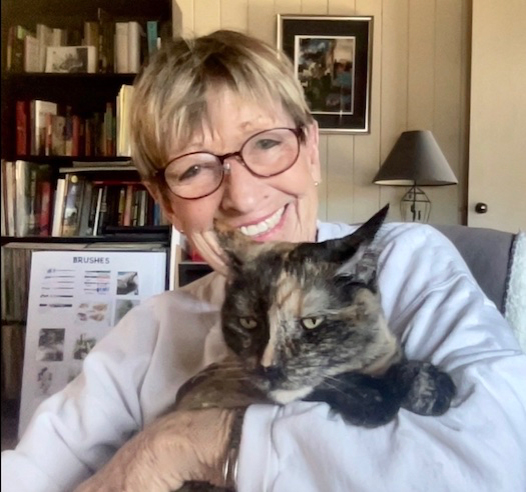

Leslie Zurla
An intro to her . . .
“Steady Ender”

The Meaning of . . .
Of all the games we played, Jump Rope had more transitions than any other. Our rope was frayed, and each time it would swing around and hit the ground, you could see tiny threads fly up in the air. One end of the rope was tied to a banister or tree, depending on where you were playing.
But then a Steady Ender had to be chosen to turn the other end of the rope. This position is assumed for the duration of the rope games.
A Steady Ender was usually the least skilled at jumping, or the youngest, or the one who can’t do a cartwheel. I was overwhelmingly qualified. So, I was always the Steady Ender.
But it wasn’t a bad thing at all. As a Steady Ender my imagination was free to roam as I turned the rope for the jumpers. Plus I avoided ridicule for a sub-par jumping performance, as well as the stress of a precise entry in the “Double Dutch” round.
As a Steady Ender, I could be an observer of all things, real and imagined. In later years my observations continued, and I began to write them down in what I began to call my “Steady Ender”.
My first Steady Ender for you is below . . . it’s called “Heels”.
— Leslie Zurla
Heels

Just as I was getting over the anxiety of walking in heels as I accepted my 8th grade diploma, I was faced with decisions about my future.
The pressures of being a high school freshman – “Academic, or Secretarial?”
I was advised that, if I became a secretary, I would always be gainfully employed. I could go anywhere in the country and contribute to the family income – even after I raised my family.
I had already heard about secretarial schools – Not only do you have to wear heels, but also you must walk, posture-perfect, across the room balancing a book on your head.
My advisor spoke with confidence about my future family and the way it should be. “Once your children have finished high school, you will re-enter the business world seamlessly.” (Well, gosh, won’t Sally and Dennis be happy about that; not to mention my husband, Doug).
I chose the academic curriculum. I said I would, most likely, go on to be a doctor. A surgeon. At least, by saying this, I could buy time to check out if female surgeons are required to wear heels in the OR.
Along with my scholarly agenda, I was required to take Home Economics. The classwork included making soft-boiled eggs and sewing.
Coming from a catering family, I was surely experienced in every aspect of the kitchen, and we never had time to sew butcher’s aprons. Plus, we never measured anything – Coffee for 100 people? No Problem. A few pounds of coffee poured into a pillowcase, sprinkle with a tad of salt, puncture the pillowcase with a fork, tie it up and drop it into several gallons of boiling water, and there you have it.
I barely passed home economics.
Besides not skillfully making a butcher’s apron, it might have been my indifference to dining etiquette rules. First of all, our family worked most of the time and always grabbed meals on the run. The “good china” made an appearance once a year, as did the assembly of our entire family, at Thanksgiving. – Separate salad forks and bread plates just meant more clean-up.
I was not a stable example for my future family of “Sally, Dennis, Doug, and his business associates.” – Especially the business associates, who would surely judge Doug by his wife’s hospitality and agility as she walked across the room in her heels, with a tray of cocktails.
At least I got through Latin I, which was my ticket to ride until I could get more clarity on OR attire.
Self-consciousness, in one form or another, consumed me. Groups formed according to popularity. When you are 14 you’re popular because of what your father does.
Sophomore year. Latin II.
When you’re 15, popularity is achieved by being academically gifted. Artistic expression and athleticism didn’t seem to count.
Fashion abounds. Hemlines rise. “That’s what they’re wearing this year.” Who are THEY? I was very chubby but carried black tunics well.
You’re popular at 16 because you put out in the back seat with seniors.
When you’re a senior, you are popular to the freshmen who are bored with being popular because of what their fathers do.
I completed Latin III and IV.
So now I’m, again, a freshman – in college. New levels of angst.
Being popular at 18 is because you were head cheerleader in high school.
When you’re 19, it’s because you are on the staff of the school paper and got Ginsberg to speak in the auditorium.
When you’re 20, it’s because of your concern to save the pheasant.
When you’re 21, it’s because of what your father does.
My college years would buy me more time to review the general landscape. And I literally did just that. I could see the New York skyline from the windows of our theatre.
It was around this time when it occurred to me that I could change my shoes any time I pleased.
